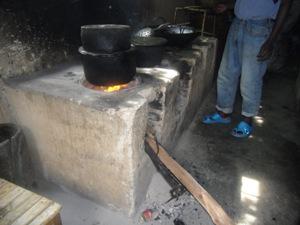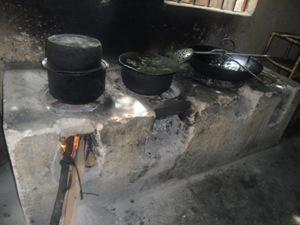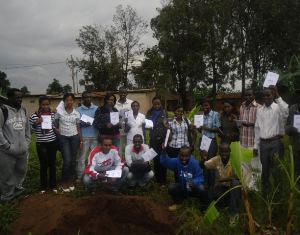Alphonse Karenzi
Other projects
14 Jun 2012
Improved Cooking Stoves Campaign against Deforestation – Continuation (ICOSCAD)
20 Feb 2014
Center for Disseminating the Best Practices for Sustainable Livelihoods and Grass-Roots Conservation of Forests in Gisagara District
23 Oct 2015
Expanded Dissemination of the Best-Forest-Conservation-Practices through an Integrated Formal Education Syllabus and Students’ House-to-House Outreach
The aim of the project is to sensitise people about the disadvantages of deforestation and encouraging them to use improved cooking stoves as the solution to the deforestation and other related problems.

Improved Cooking Stoves Campaign Against Deforestation (ICOSCAD) is one year program run in the Gisagara district, one of the most densely populated rural districts in Rwanda which is facing different problems related to deforestation such as delayed rainfall, soil erosion and high winds due to the high consumption of firewood in traditional cooking stoves and local communities lack knowledge concerning the role of forests in their daily life.

ICOSCAD will be campaigning against deforestation by sensitizing people the role of forests and encouraging them to use improved cooking stoves (ICS). These stoves save up to 75% of firewood compared to traditional stoves and reduce smoke emission significantly (data from MOD 2008).

Well trained volunteers holding their teaching manuals.
ICOSCAD will train twenty student volunteers from national university of Rwanda about the role of ICS as a method of tackle local problems. Those twenty volunteers will learn also how to build ICS so that they can adequately train 130 local leaders from thirteen sectors of this district (ten leaders from each sector). During the training of local leaders will be built thirty nine ICSs (3 in each sector) for the most vulnerable families as sample which will long term help other families to copy them and build their own ICSs. ICOSCAD will also evaluate and monitor the use of those built improved cooking stoves and the spread of knowledge in their local communities by trained leaders.
by reducing the amount of the wood used for cooking and decreasing the energy and time spent on the woods collection from the forests, this project is expected to contribute to not only the environmental improvement such as saving biodiversity but also to the social and primary educational enhancement . As outcomes, ICOSCAD will decrease; the level of deforestation in the area, air pollution and respiratory diseases, risk of house fires, and also the level of domestic violence against women.